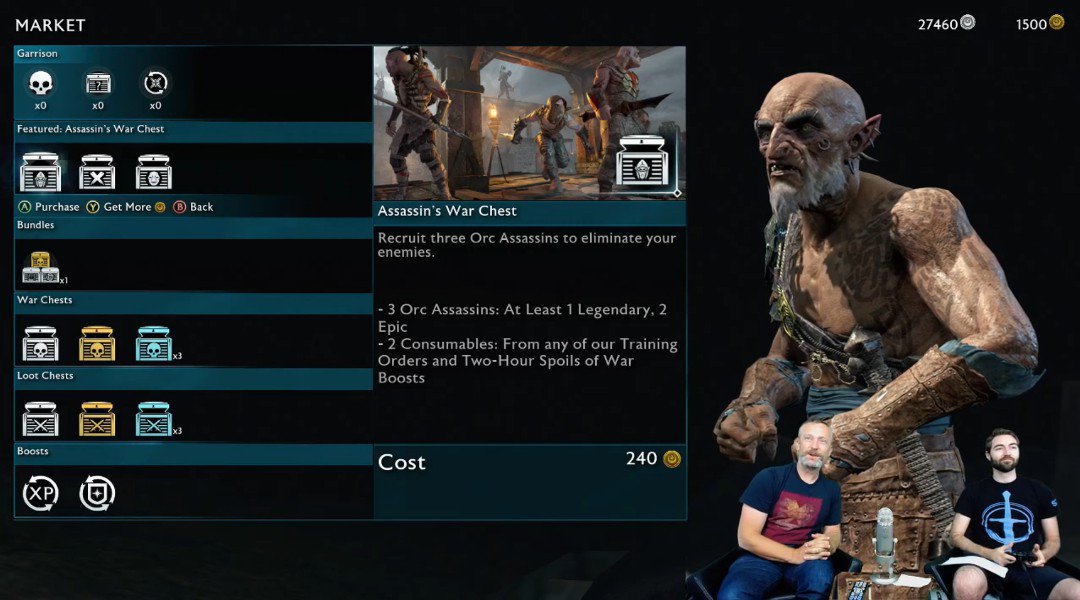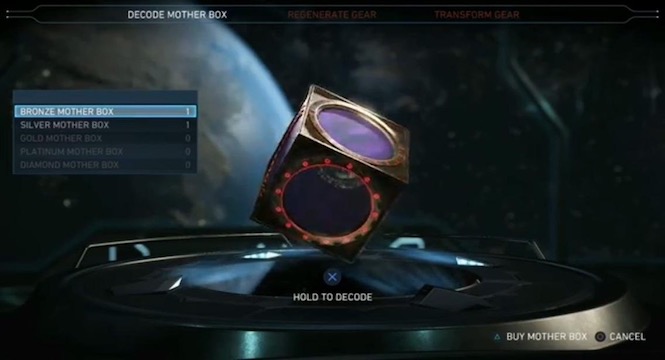The contentious issue of loot boxes in video games has prompted a variety of responses from authorities in various countries. The Dutch and Belgian authorities, for example, have taken swift action and have announced that publishers who don’t meet their guidelines might face legal action. The French gambling regulator, on the other hand, is refraining from defining loot boxes as gambling.
In a recently published report, the Autorité de regulation des jeux en ligne (ARJEL) has criticized loot boxes but says that a “combined and coordinated” action plan is required to deal with them, according to a translation and analysis of the report by media law associate Sebastian Schwiddessen. ARJEL believes that regulation of loot boxes would require input from several institutions including gambling authorities, consumer protection authorities, financial and banking regulators, and data protection authorities. ARJEL wants European financial regulators, for instance, to step in and provide a more “coherent” analysis of microtransactions.
But does ARJEL believe loot boxes can be considered gambling? The authority believes that for loot boxes to qualify as gambling, the items contained within them must have real-life monetary value, and adds that it’s currently investigating the possibility of selling loot box-generated items.
Schwiddessen’s anlysis of the report suggests that ARJEL is reluctant to take solo action and is seeking further clarification from several authorities for a combined effort to address loot boxes. However, don’t expect an outcome anytime soon. It also seems unlikely that ARJEL will follow the Belgian and Dutch authorities’ footsteps.
[Source: ARJEL via Sebastian Schwiddessen (LinkedIn), Games Industry]
Now Loading: Loot boxes
-
Are Loot Boxes Inherently Bad?

-
Anthony Nash

As long as the concept of microtransactions doesn’t limit me from earning anything that’s in the game. I don’t really mind. I like that they exist for the people who want to play something, but may not have the ability to invest 100’s of hours into in order to fully enjoy a game. It all boils down to how they’re implemented, and are only really a problem when a game becomes too dependent on them or tries to constantly force the player to acquire them.
-
Cameron Teague
 I don't mind loot boxes, because it really doesn't impact the core game.
I don't mind loot boxes, because it really doesn't impact the core game. -
Chandler Wood

This is practically an article of its own, mostly because there are so many factors at play. Loot boxes are great. They are fun and there's a certain rush from opening one or two or 20. But poor implementation can shed a bad light on them. My number one thing is that they have to be earnable in-game. Loot box microtransactions are awful if developers don't offer the same opportunity to players who don't pay money. If the field is balanced, then I'm all for them, microtransactions and all.
Let's say I don't have a chance to play an Overwatch event, but really wanted a shot at the event skins. I've got no problem dropping some money for the chance, because I know I'll be grinding out and playing for other event skins later. Loot boxes are most often in games I find myself pouring hundreds of hours into, so the occasional microtransaction to support the dev that gave me hundreds of hours of enjoyment is fine by me. In many ways, purchasing microtransactions like loot boxes is my way of tipping the developer for an exceptional job and an enjoyable experience. -
Elizabeth Henges

I don't like the general idea of loot boxes, outside of a cosmetics thing. I don't hate microtransactions in general mind you--stuff like season passes and other DLC are fine as long as they're reasonably priced. But paying for the chance to hopefully get something useful to you, I feel is a rather scummy practice, especially when real money is introduced into the economy. It's a thing that can easily trigger the same tendencies as you would in a gambling addict, and without proper ways to limit spending on the loot boxes, that's really... well, just pretty terrible. It seems even worse in games you have to buy in the first place like Shadow of War, because it's just tacking on extra money given to Warner Bros that may or may not be worth the money you spend.
That said loot boxes don't affect me one way or the other, as I'm not a multiplayer gamer, and none of the single player games have loot boxes in them... yet. -
Heath Hindman

If you have the option to buy individual items alongside or in lieu of earning (or buying) loot boxes, then okay, whatever. But paying for just a chance of getting the thing you really want is, by definition, gambling. Some people have personalities and brain wiring that won't be affected by the setup, while others can and will be open for exploitation. It's in general a shitty practice. I say this even though I love Overwatch.
-
Keri Honea
 I don't play multiplayer, so loot boxes have never really crossed my thoughts. I can see why they would be a problem if they offer a pay-to-win scenario,
I don't play multiplayer, so loot boxes have never really crossed my thoughts. I can see why they would be a problem if they offer a pay-to-win scenario, -
Paulmichael Contreras
 I'm in the same boat as everyone else. As long as any paid loot boxes aren't part of some pay-to-win scheme where the only way to stand a chance in multiplayer matches is to cough up more cash, then they're fine by me. I've never outright purchased a premium loot box in any game, but then I'm okay with spending extra time grinding for something that I want.
I'm in the same boat as everyone else. As long as any paid loot boxes aren't part of some pay-to-win scheme where the only way to stand a chance in multiplayer matches is to cough up more cash, then they're fine by me. I've never outright purchased a premium loot box in any game, but then I'm okay with spending extra time grinding for something that I want. -
Tyler Treese
 This isn't an easy question to answer as the implementation varies from game to game. There are certainly cases where loot boxes being present can take away from the sense of progression and it's an annoyance, but there are also games that have benefitted greatly from them. I love the feeling of leveling up in Overwatch, getting a loot crate as a reward, and then seeing what I got. I also feel that Injustice 2's loot boxes had me playing that game for far longer than I would've without it, as I wanted to get new gear for my characters. The system was balanced really well as players couldn't pay for new gear, just cosmetic items, so it never veers into the pay to win category. There are also plenty of instances where loot boxes are present and there aren't microtransactions involved (such as the upcoming WWE 2K18), so it's a bit annoying that the two ideas are constantly conflated together as one.
This isn't an easy question to answer as the implementation varies from game to game. There are certainly cases where loot boxes being present can take away from the sense of progression and it's an annoyance, but there are also games that have benefitted greatly from them. I love the feeling of leveling up in Overwatch, getting a loot crate as a reward, and then seeing what I got. I also feel that Injustice 2's loot boxes had me playing that game for far longer than I would've without it, as I wanted to get new gear for my characters. The system was balanced really well as players couldn't pay for new gear, just cosmetic items, so it never veers into the pay to win category. There are also plenty of instances where loot boxes are present and there aren't microtransactions involved (such as the upcoming WWE 2K18), so it's a bit annoying that the two ideas are constantly conflated together as one. -
Zarmena Khan

Honestly, I don't remember the last time I played a game that involves loot boxes. I mean, I'm not a multiplayer person and I'm not exactly competitive so I'm probably not the best person to answer this question. However, I can say that as long as the core game isn't impacted by the loot boxes, they're fine. The practice only becomes bothersome when people are roped into spending money and gain an advantage based on that.




